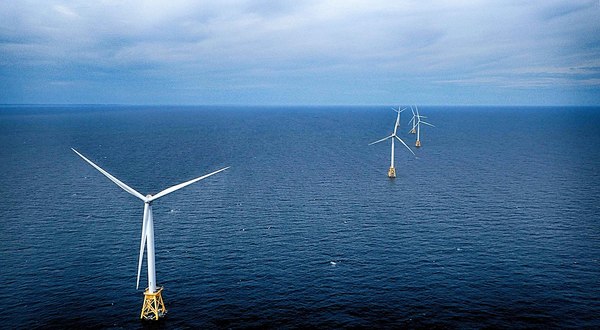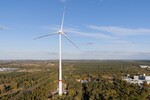News Release from windfair.net
Wind Industry Profile of
Offshore wind farms and fishery
While various tenders have been held on the U.S. East Coast by the government in recent months to auction off the seabed - and thus the right to build a wind farm - there is still no other commercial-sized offshore wind farm off U.S. shores besides the 30 MW small Block Island offshore wind farm.
In addition to homegrown problems such as the Jones Act, which ensures that shipping between U.S. ports is basically restricted to vessels that are U.S.-made, owned by U.S. citizens, and operated by U.S. citizens, there are more concerns of various kinds that other parts of the world have already left behind.
Environmentalists, e.g. have repeatedly warned of impacts on local flora and fauna. Fishermen fear for their catch from a restriction of fishing. On the other hand there is the apprehension of a disappearance of biodiversity that drives the protests.
Now though there are first U.S. studies that refute these arguments. Thus a study was published in late March in the ICES Journal of Marine Science that reviewed the waters around Block Island for seven years, Electrek reports.
The researchers examined data collected between 2012 and 2019 during monthly trips to the offshore wind farm by a commercial trawler that traveled between turbines. Block Island's wind turbines are each half a nautical mile apart, while projects currently planned for the U.S. East Coast are said to be as much as a full nautical mile apart. The study collected nearly 664,000 fish from 61 species. The researchers found that during Block Island's construction and operation, there were no significant negative impacts on fish living near the seafloor - known as groundfish - or invertebrate populations.

Block Island remains the only wind farm in the U.S. to date. (Image: Ionna22, CC BY-SA 4.0, via Wikimedia Commons)
On the contrary, positive effects have been discovered, which the Boston Globe explains, "The only meaningful effect they found by the wind turbines was positive: a lot more black sea bass were congregating around the Block Island wind farm, probably because they like to hang out near physical structures like wind turbine foundations. Scientists also found more Atlantic cod there, but not often enough to draw any firm conclusions."
The study looked not only at which fish were caught, but also what condition they were in and what was in their stomachs. Some fish ate more mussels, suggesting that they were feeding on mussels growing on the turbines themselves.
It's a phenomenon that has been observed at other wind farms around the world. In the Netherlands, for example, there is now even an attempt to reintroduce the already extinct oyster in the vicinity of wind farms, as the foundations of the turbines act as artificial reefs. Many other fish species also take advantage of the calmer environment around the foundations, which means that the species richness within the wind farms is particularly high. European researchers have expressed hope that this could even help fish populations recover in the long term, in part because commercial fishing is banned in Europe directly between turbines.
In the U.S., too, the wind industry hopes that such studies will help dispel concerns and get fishery and environmental protection on the side of wind energy so that the entire industry, which has been in the starting blocks in the U.S. for years, can finally get going.
- Author:
- Katrin Radtke
- Email:
- press@windfair.net
- Keywords:
- USA, wind farm, offshore, turbine, foundation, fishery, species, fish, oyster, concern, environment, ban, Jones Act
























